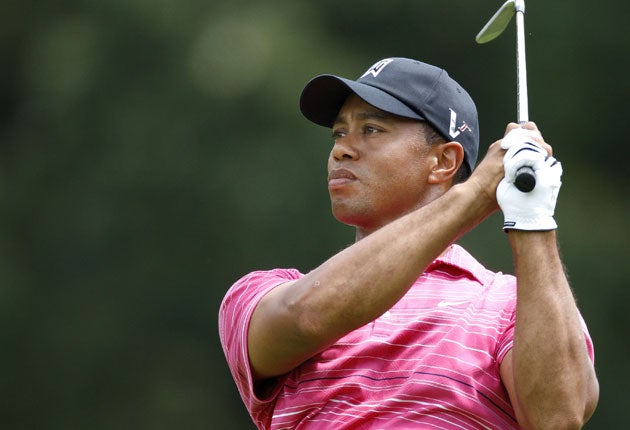James Lawton: A sportsman with little time to play the media game

Your support helps us to tell the story
From reproductive rights to climate change to Big Tech, The Independent is on the ground when the story is developing. Whether it's investigating the financials of Elon Musk's pro-Trump PAC or producing our latest documentary, 'The A Word', which shines a light on the American women fighting for reproductive rights, we know how important it is to parse out the facts from the messaging.
At such a critical moment in US history, we need reporters on the ground. Your donation allows us to keep sending journalists to speak to both sides of the story.
The Independent is trusted by Americans across the entire political spectrum. And unlike many other quality news outlets, we choose not to lock Americans out of our reporting and analysis with paywalls. We believe quality journalism should be available to everyone, paid for by those who can afford it.
Your support makes all the difference.Of all the allegations against Tiger Woods, the one with least substance is that until now he has carefully built an image designed to please the sponsors who have helped make him the richest sportsman in history.
This specific charge – anyone who has been around him for any length of time can say – is a myth.
Woods may have managed until the last few days to keep the public unaware of any extra-marital adventures, but this is surely par for the course for most bearers of celebrity who draw the fuel of their success from somewhere other than tabloid front pages.
In all else, it is certainly true of Tiger that what we see is more or less what we are getting.
This is a tough, often rough-tongued character who leaves no one in any doubt about his greatest imperative. It is to win: on a golf course, a cards table, or more or less anywhere else that a drop of competitive juice may flow. The Tiger was bred to be a winner by his father, the late old jungle- fighter Earl, and sensitivity to the feelings, or weaknesses, of others has never been a characteristic.
Britain's Colin Montgomerie suffered the cruel lesson when the 21-year-old Woods annexed the world of golf by winning his first major title, the 1997 US Masters at Augusta, by a record margin. Before the event, Montgomerie had talked, patronisingly in the Tiger's view, of how the young contender would now find life more difficult among the "big boys".
Malevolently, fate partnered Montgomerie with Woods on the third day of the tournament. The American was overwhelming with his brilliant play and killer instinct, and Montgomerie trudged around the beautiful course with the demeanour of a man being led to the gallows.
Later, the Tiger was asked if it had given him particular satisfaction to have so swiftly corrected and punished the senior player. He delayed his response for a pregnant second or two, then broke into a huge smile and said: "Yes – big time."
Woods also brought frowns to the committee men after that first major win when he told America that he had been "pissed off" when missing a potentially crucial shot while being interviewed for television in the hallowed Butler Cabin.
The Tiger was unforgiving of the veteran golfer and former US champion Fuzzy Zoeller when Zoeller said he hoped Woods would not serve fried chicken and whatever else "those people" served at the champion's dinner. Woods made it clear he would not easily forget such a slight.
If Woods has until now largely avoided controversy, it is not because he has painted himself as some kind of paragon of country club America. If he misses a shot, badly, he may well toss away his club – recently doing so to the peril of some spectators – along with a few expletives.
His gambling instinct is strong and is said to have led him into some perilous nights in the private rooms of Las Vegas casinos. It is an extension of a desire to put an edge on any kind of golf contest, even a practice round – a tendency which is common in golf.
When Woods was a boy, his father once noticed that his trouser pockets were bulging with quarter coins after playing a round with some of his friends. A friend of the family reported: "Earl tried to persuade Tiger that he should concentrate solely on the golf, but that was one point he never really got across."
Nor has anyone been able to persuade Tiger that he should more cheerfully embrace the concept of team play. His indifference to the appeal of the Ryder Cup, contested every two years by the US and Europe, has never been hidden.
When he missed most of the preparation for one of the matches – while winning a million- dollar tournament elsewhere – he explained that, try as he might, he just couldn't generate overwhelming enthusiasm. He said: "The thing with team sport is that it doesn't matter how well you do, you are dependent on the rest of the team... It just doesn't do too much for me."
It was hardly the statement of someone robotically attuned to the paramount need for public relations. More important by far – it has always been evident – were his own needs and satisfactions, which is perhaps the most relevant point at which to re-join an unfolding story.
Join our commenting forum
Join thought-provoking conversations, follow other Independent readers and see their replies
Comments